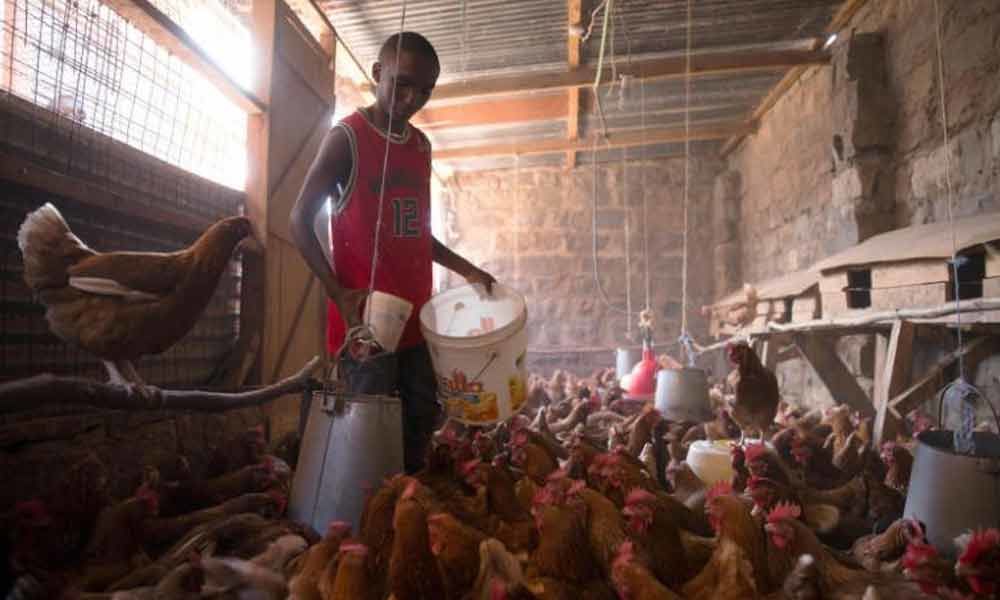From poo to food: Kenyan toilet waste key for new animal feed

Kenyan farmer Victor Kyalo's chickens have doubled the number of eggs they are laying. The reason: Human excrement.
Kenyan farmer Victor Kyalo's chickens have doubled the number of eggs they are laying. The reason: Human excrement. He is feeding them food from a Nairobi-based organics recycling company.
Sanergy harvests waste from toilets it operates in a franchise network in Nairobi's sprawling slums and feeds it to fly larvae, which become high-quality animal feed.
Kyalo says his customers have noticed the difference in the past three weeks: yellower yolks and larger eggs. "Before we were getting like five trays (of eggs) per day, but now we are getting 10," Kyalo said. "It's kind of perfect for me."
As the world looks to feed 10 billion mouths by 2050, businesses harvesting insects - either for human consumption or as animal feed - are growing. They promote themselves as a greener alternative to traditional feed such as soybeans, whose cultivation can lead to deforestation and the overuse of farm chemicals.
Fast food giant McDonald's and US agricultural powerhouse Cargill Inc are among many large companies studying using insects for chicken feed to reduce reliance on soy protein in the $400 billion-a-year animal feed business. By 2023 the global edible insect market could triple to $1.2 billion from current levels, market research firm Meticulous Research said last year.
In developing countries like Kenya, where the World Bank says nearly two-thirds of urbanites live in slums, feeding waste to fly larvae could solve both sanitation and nutrition problems.
Faeces from more than two-thirds of Nairobi's inhabitants go untreated because there are not enough toilets. Many others are not cleaned out regularly, Nairobi City Water and Sewerage Company said.
During the rains, they often overflow, polluting local waterways. That can make workers ill. Days off slow Kenya's economy by around 1% annually, its Health Ministry said.
David Auerbach co-founded Sanergy eight years ago to deal with sanitation. The waste management franchise provides more than 2,500 toilets to 100,000 people daily.














